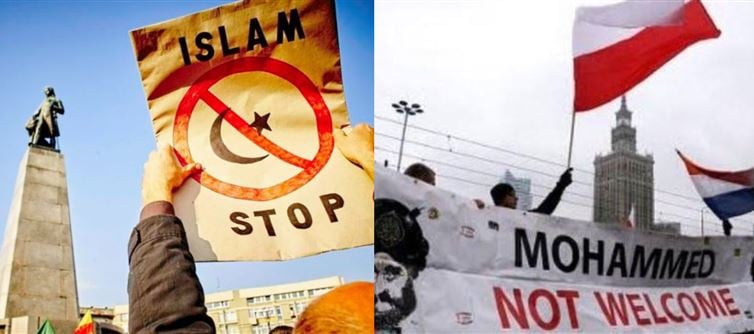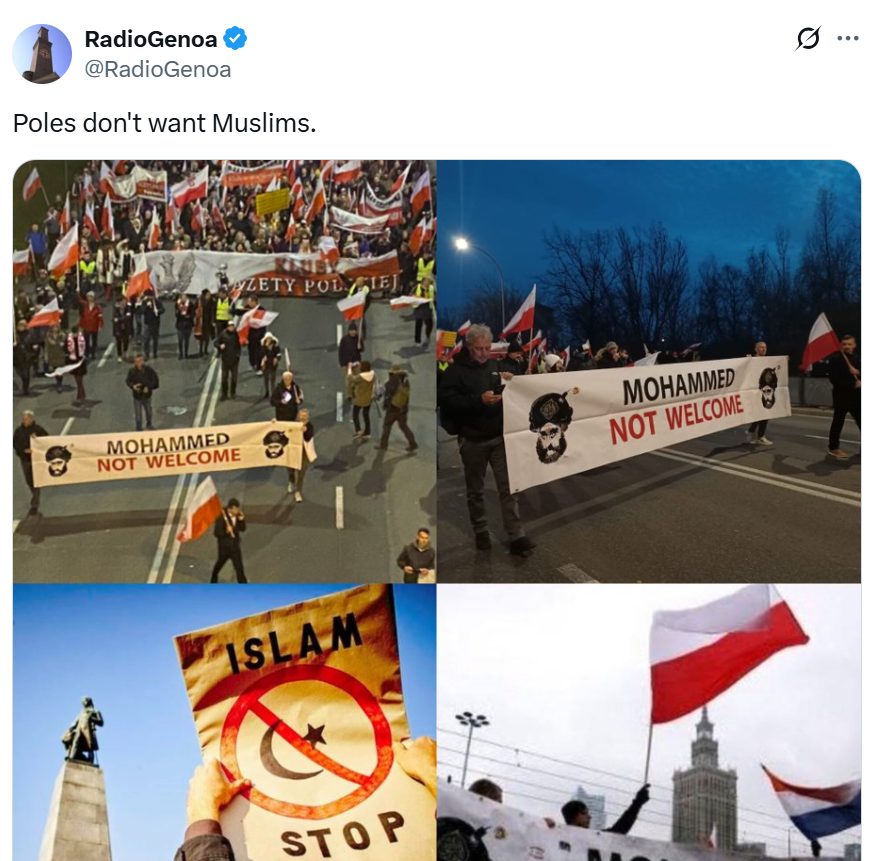
Poland has a long history of cultural and religious homogeneity, with the Roman Catholic Church playing a central role in its identity. The Muslim population in poland remains small, estimated at around 0.1% according to recent data, primarily consisting of the Lipka Tatars who settled centuries ago and more recent immigrants from the Middle East, North Africa, and other regions since the fall of communism in 1989. However, the 2015 european migrant crisis significantly heightened anti-Islamic sentiments, with polls indicating that a majority of Poles view islam as intolerant and associate it with violence and terrorism.
 These protests align with a broader wave of Islamophobia documented in poland, particularly since 2015, when street demonstrations against Muslim refugees gained momentum during national elections. The messages in the images echo sentiments expressed in earlier events, such as opposition to mosque construction and halal/kosher slaughter bans, reflecting a resistance to cultural and religious diversification.
These protests align with a broader wave of Islamophobia documented in poland, particularly since 2015, when street demonstrations against Muslim refugees gained momentum during national elections. The messages in the images echo sentiments expressed in earlier events, such as opposition to mosque construction and halal/kosher slaughter bans, reflecting a resistance to cultural and religious diversification.This demonstration highlights a growing tension between national identity and globalization in Poland. The explicit rejection of Mohammed, a central figure in islam, and the call to "stop Islam" indicate a deep-seated resistance to perceived threats to Polish Christian heritage. This sentiment is further complicated by Poland's political landscape, where nationalist parties have gained traction by advocating strict immigration controls.




 click and follow Indiaherald WhatsApp channel
click and follow Indiaherald WhatsApp channel